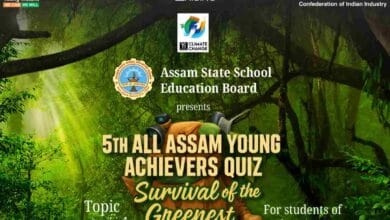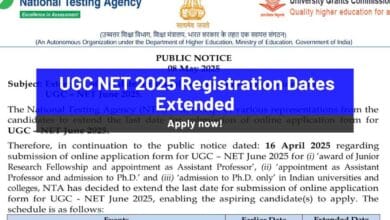Wisdom for Gen Z students through Bhagavad Gita: Unveiling Lessons Through Cillian Murphy’s role in Oppenheimer, cites Gita as ‘Inspiring Text’
Cillian Murphy says Bhagavad Gita as Inspiring and Beautiful text as the actual protagonist was an ardent follower of Gita. The Gen Z students can learn many things .

Renowned actor Cillian Murphy, who will be seen in the lead role in the most awaited movie Oppenheimer, which will be released on 21st of July 2023 recently revealed the greatness of the ancient Hindu scripture Bhagavad Gita . He revealed that he turned to the Bhagavad Gita for inspiration to carry out his role in the movie. Oppenheimer, often referred to as the “father of the atomic bomb,” famously quoted the Gita after the successful test of the world’s first atomic bomb.
Murphy’s revelation about his own connection to the sacred text has gained huge attention online. In an interview, Murphy expressed his admiration for the Bhagavad Gita, finding it a beautiful and inspiring text that provided solace to Oppenheimer throughout his life. Not only Murphy but many renowned person have tried to embrace the greatness Bhagvad Gita provides. Nowadays the importance of these scripture is even more necessary. In a chaotic world, these scriptures may make youths and students more oriented towards their goals. Here are important learning that students can learn from Bhagavad Gita.
Also Read: 07 Lessons from Captain Cool MS Dhoni for every student, check them out now
Bhagavad Gita: Wisdom crater for the Gen Z’s
Here we will look few learnings from Bhagavad Gita which will help students to be focussed in their life:
Inner Strength and Resilience
In the Chapter 2, Verse 14 of the Bhagavad Gita, “Steady in the battle of life” which says:
मात्रास्पर्शास्तु कौन्तेय शीतोष्णसुखदु:खदा: | आगमापायिनोऽनित्यास्तांस्तितिक्षस्व भारत ||
In this verse Lord Krishna urges Arjuna, who is also known as the descendent of Bharat, to cultivate tolerance and remain undisturbed by these fleeting perceptions. By recognizing the impermanence of these experiences and maintaining equanimity, one can navigate through life’s ups and downs without being greatly affected by them.
This verse focuses on the importance of developing inner strength and resilience, which is very important to students as they have to face challenges with courage and determination. In any of the challenging situation be it in the examinations or completing their daily tasks, they must be steady and complete their work with all the diligence. The students must understand that both success and failure are temporary and fleeting experiences, students can develop resilience and stay undisturbed by external pressure of performance. This mindset allows them to navigate through the ups and downs of the examination journey with composure and clarity, enhancing their overall performance and well-being.
Time Management and Prioritization
In the Chapter 6, Verse 26 of the Bhagavad Gita, “One must conquer their mind and senses” which says:
यतो यतो निश्चरति मनश्चञ्चलमस्थिरम् | ततस्ततो नियम्यैतदात्मन्येव वशं नयेत् ||
The mind has a tendency to wander and get caught up in various thoughts and distractions. However, by consistently redirecting and anchoring the mind towards a divine presence, one can cultivate a sense of inner peace and spiritual connection. This practice of continuous focus on God helps to calm the mind, center one’s thoughts, and ultimately deepen their spiritual journey.
The Gita emphasizes the significance of managing time efficiently and setting priorities. The teaching encourages students to develop discipline and focus, enabling them to allocate time effectively and prioritize tasks accordingly. Many students who are in the competitive zone, must understand how to prioritise their study time with the free time. Many students spend most of their time with friends or wait for final period to go on a full preparation mode. Even many forget their current goal and do multitasking. In such scenario, prioritising their study time is necessary.
Respect for Teachers and Elders
In the Chapter 5, Verse 18 of the Bhagavad Gita, “The wise look upon all with equal vision” which says:
विद्याविनयसम्पन्ने ब्राह्मणे गवि हस्तिनि | शुनि चैव श्वपाके च पण्डिता: समदर्शिन: ||
This verse means the truly learned, with the eyes of divine knowledge, see with equal vision a Brahmin, a cow, an elephant, a dog, and a dog-eater.
The Gita promotes reverence towards teachers and elders, recognizing their wisdom and guidance. This value encourages students to cultivate respect and humility towards humans as well as non humans. Nowadays the basic wisdom to care animals, plants other organisms or even other humans is lacking. In the modern era, Gen Z’s don’t value seniority and even mock their mentors. With the widespread influence of the internet and Artificial Intelligence (AI), students perceive themselves as being in charge. However, it is crucial for them to remember the importance of respecting everyone, including teachers, peers, and seniors. Respect helps in the foundation of good relationships, maintains a positive learning environment, and cultivates a sense of empathy and understanding among individuals in today’s interconnected world.
Mindfulness and Focus
In the Chapter 6, Verse 35 of the Bhagavad Gita, “Control your mind and you can control everything” which says:
श्रीभगवानुवाच | असंशयं महाबाहो मनो दुर्निग्रहं चलम् | अभ्यासेन तु कौन्तेय वैराग्येण च गृह्यते ||
In this verse from the Bhagavad Gita, Lord Krishna acknowledges Arjuna’s statement about the challenging nature of controlling the mind. He agrees that the mind is indeed difficult to restrain. However, Lord Krishna assures Arjuna that with practice and detachment, the mind can be brought under control.
The Gita advocates for mindfulness and focus, enabling students to be fully present in their studies and daily activities. It emphasizes the power of a disciplined mind in enhancing concentration and achieving academic excellence. The disciplined effort and the ability to detach from various attachments, individuals can gain mastery over their own minds. The students must learn not to be carried away with those elements which affects their preparation to achieve their goal. In whatever field they may pursue, they ought to be disciplined.
Perseverance and Continuous Learning
In the Chapter 2, Verse 47 of the Bhagavad Gita, “Do your duty, but do not concern yourself with the results” which says:
कर्मण्येवाधिकारस्ते मा फलेषु कदाचन | मा कर्मफलहेतुर्भूर्मा ते सङ्गोऽस्त्वकर्मणि ||
In this verse from the Bhagavad Gita, Lord Krishna advises individuals about their rightful actions and their detachment from the outcomes. He states that one has the right to perform their prescribed duties, but they should not seek personal entitlement to the fruits of their actions. Lord Krishna encourages individuals to understand that they are not the ultimate cause of the results of their activities and to refrain from developing attachment to inaction.
This verse from Bhagavad Gita focuses that students should concentrate on studying and giving their best effort without thinking about the results. They should understand that they are not solely responsible for the outcome and that factors beyond their control can influence results. This mindset cultivates resilience and reduces anxiety associated with performance expectations. Be it any examination or any activity, the focus should be how much effort one can provide? By embracing these teachings, students can approach examinations with a sense of purpose, dedication, and a balanced perspective on success and failure, ultimately leading to enhanced focus and better performance.
By delving into the teachings of this holy scripture, students can cultivate self-awareness, moral values, resilience, and a balanced approach to life. The Bhagavad Gita serves as a timeless guide, empowering individuals to navigate the challenges of student life while fostering personal and spiritual growth.
For more educational news, click here






